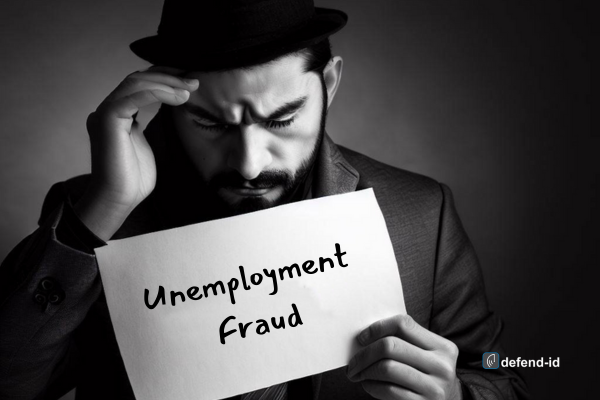As an employer, you might think that identity theft and fraud only happen to individuals. However, fraudsters are not only after personal information but also after company assets, particularly unemployment insurance funds. With the easing of regulation and an increase in benefit amounts, the filing of fraudulent unemployment claims has become a particularly profitable avenue for criminals recently. In fact, according to the Government Accountability Office, in 2020 alone, the US government paid out over $12 billion in fraudulent unemployment benefits.
What is unemployment fraud?
It occurs when someone knowingly and willfully makes false statements or withholds information to obtain unemployment insurance benefits. During the COVID pandemic, unemployment fraud has skyrocketed due to the high number of people who lost their jobs and the increase in benefit amounts. Fraudsters have taken advantage of overwhelmed state agencies that are responsible for processing claims and submitting false claims on behalf of others, including people who still have jobs.
Protect your company
To protect against unemployment fraud, employers should be aware of the tactics used by fraudsters. Here are some steps employers can take to protect their companies from unemployment fraud:
- Educate employees about unemployment fraud: Let your employees know about the potential for fraud and provide them with information on how to spot and report it.
- Monitor unemployment claims: Regularly review and monitor claims filed against your company. If an employee is still working for you and you receive a claim for unemployment benefits on their behalf, report it immediately.
- Respond to notices promptly: If you receive a notice of unemployment benefits filed on behalf of one of your employees, respond promptly with accurate and detailed information.
- Keep employment records up-to-date: Ensure that your employee records are accurate and up-to-date. This includes information such as start and end dates of employment, pay rates, and job titles.
- Consider a third-party vendor: Consider using a third-party vendor to help manage unemployment claims. These vendors can provide expertise in handling claims and help identify potential fraud.
Suspect Fraud?
If you suspect fraudulent activity, you should take immediate action. The first step is to report the suspected fraud to the appropriate state agency. You should also conduct an internal investigation to determine if fraud has occurred within your organization. If fraud is confirmed, take action to prevent further losses and report the incident to the appropriate law enforcement agency.
It’s important to note that unemployment fraud is a form of identity theft, and as an employer, you may also have to address the potential identity theft of the affected employee and other employees. When fraudsters obtain an employee’s personal information to file a fraudulent unemployment claim, it can lead to other forms of identity theft, such as credit card fraud or opening fraudulent accounts in the employee’s name. Therefore, it’s essential to take swift action and report any suspected fraudulent activity to prevent further losses and protect your employees’ personal information. By doing so, you can help safeguard your company’s assets and reputation, as well as ensure the well-being of your employees.
While fraudsters may use various tactics to steal from individuals and companies, unemployment fraud is a particular concern for employers. By taking the steps outlined above, employers can help protect their companies from fraudulent unemployment claims and ensure that unemployment insurance funds are used for their intended purpose. Stay vigilant and report any suspected fraudulent activity immediately.
Related articles
- Tax Unemployment Fraud at Epidemic Levels
- Protect Yourself from Tax Fraud
- Life Insurance Fraud?
- FTC Data – https://www.ftc.gov/news-events/data-visualizations/explore-data
